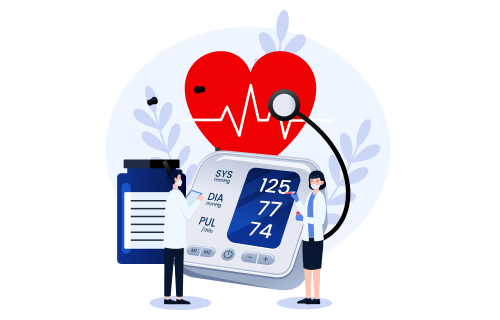Cardiologists are doctors who manage conditions like heart attacks, heart failure, and arrhythmias. Genetic testing has become a valuable tool in cardiology, helping to evaluate a person’s risk for certain inherited heart conditions. This testing looks for specific changes in your genes that are associated with a higher likelihood of developing heart disease. Here is more information about this testing approach:
Initial Consultation
The genetic testing process typically begins with an initial consultation with a cardiologist. During this appointment, the cardiologist may gather your personal and family medical history. They will ask detailed questions about your health and the health of your relatives, including parents, siblings, and children. Information about any sudden or unexplained deaths in the family, particularly at a young age, is also collected.
An expert in cardiology may perform a physical examination. They can discuss the reasons for recommending genetic testing and explain which specific conditions they are looking for based on your history. They may also talk about the possible outcomes of the test and what the results might mean for you and your family members. This conversation provides an opportunity for you to ask questions and understand the scope of the testing process.
Blood Sample
After the consultation, the next step is to provide a sample for analysis. This process is straightforward and non-invasive. Typically, you will have your blood drawn from a vein in your arm to collect the sample. In some cases, you might use a saliva sample instead. You will be asked to spit into a collection tube until you provide the required amount. Both methods effectively obtain the DNA needed for the test. After collecting, the sample can be carefully labeled and sent to a specialized laboratory for processing.
Laboratory Analysis
At the laboratory, technicians can extract a blood or saliva sample and read your genetic code using specific methods. The lab analyzes genes known to link to inherited heart conditions by comparing your genetic sequence to a reference sequence. They may look for variations or mutations in your genes that increase the risk of certain conditions.
After completing the analysis, the laboratory can create a detailed report of its findings. Your cardiologist receives this report and interprets the results based on your personal and family medical history. Depending on the findings, your cardiologist might recommend additional tests, suggest lifestyle changes, or prescribe specific treatments to manage or lower your risk. They may also suggest genetic counseling to help you and your family understand the implications of the results and make informed health decisions.
Receiving the results of your genetic test leads to a follow-up discussion with your cardiologist. If a genetic mutation associated with heart disease is found, the cardiologist can outline a personalized management plan. Lifestyle modifications related to diet and exercise may be suggested. In some instances, preventative medications or medical procedures might be discussed as options to manage your risk. The goal is to create a proactive approach to your heart health based on your genetic information.
Find Cardiology Services Near You
Understanding your genetic risk for heart disease is a process that involves several steps, from initial discussions to long-term management. Working with a cardiology team provides you with guidance and support along the way. If you have concerns about your family history of heart disease, speaking with a healthcare provider is a good first step. To find a qualified cardiologist and learn more about available services in your area, contact a clinic for assistance.
Social Sharing
Your Content Goes Here
Latest Posts





